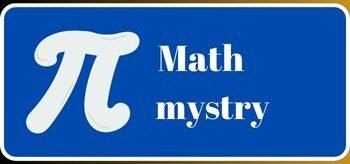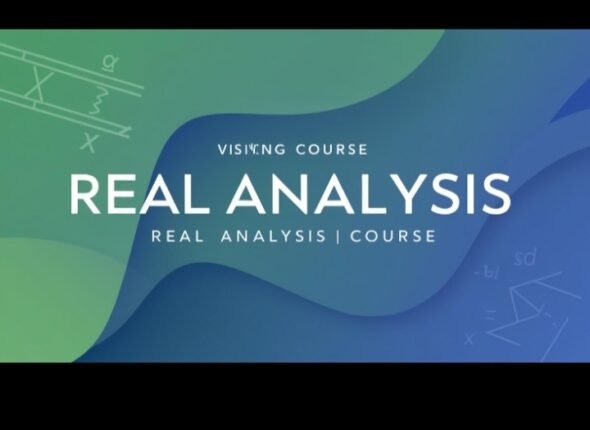Currently Empty: $0.00
- Description
- Curriculum
- FAQ
- Notice
- Reviews
Mastering Calculus: A Complete Guide for Students
Mastering Calculus: A Complete Guide for Students introduces essential concepts of differential and integral calculus. In this guide, learners will explore limits, derivatives, integrals, and applications in physics, engineering, and economics.
Calculus is a fundamental branch of mathematics that explores the concepts of change and motion. It offers essential tools for understanding how quantities evolve and for calculating rates of change, areas, and volumes. The two primary branches of calculus—differential calculus and integral calculus—are closely related. Differential calculus focuses on derivatives, which measure how a function changes at any point, while integral calculus is concerned with the accumulation of values, such as calculating the area under curves or the total of continuously changing quantities.
Whether you’re learning the basics or delving into more advanced applications, calculus plays a crucial role in fields like physics, engineering, economics, biology, and computer science. It serves as the foundation for much of modern science and mathematics, enabling us to model and solve problems involving dynamic change.
What Will I Learn?
In Calculus, you will delve into a broad array of fundamental and advanced topics, including:
- Limits and Continuity: Understand the behavior of functions as they approach certain points and learn about the continuity of functions in their graphs.
- Differential Calculus: Learn how to compute derivatives to measure the rate of change of functions at any given point. You’ll explore various differentiation techniques and apply them to solve practical problems, such as optimization and motion.
- Integral Calculus: Explore integration, which focuses on calculating accumulated quantities like areas under curves and volumes of solids, as well as solving problems related to rates of change.
- The Fundamental Theorem of Calculus: Gain insight into the powerful connection between differentiation and integration, and how they work together to solve complex problems.
- Applications of Calculus: Discover how calculus is applied across fields like physics, engineering, economics, and biology to model and address real-world problems involving change, growth, and optimization.
- Techniques and Methods: Master advanced methods such as integration by parts, partial fractions, and multivariable calculus, equipping you to solve more challenging problems.
- Series and Sequences: Study infinite sequences and series, including convergence tests and approximating functions with power series.
By mastering these topics, you will develop a strong understanding of how calculus helps solve problems related to change and accumulation, providing a solid foundation for further exploration in mathematics and beyond.
Lifelong Benefits in Mastering Calculus: A Complete Guide for Students
Calculus is designed for a wide range of learners with different backgrounds and objectives:
High School Students: Those studying advanced mathematics and preparing for college courses or seeking to strengthen their mathematical skills.
College Students: Undergraduates pursuing degrees in mathematics, engineering, physics, computer science, economics, or related fields, where calculus is a key part of their curriculum.
Future Professionals: Individuals planning careers in areas such as data science, economics, physics, engineering, or finance, where calculus is essential for solving complex real-world problems.
Lifelong Learners: Anyone interested in mathematics or looking to deepen their understanding of change, motion, and their applications, whether for personal enrichment or professional growth.
Educators and Tutors: Teachers looking to expand their knowledge and resources or enhance their ability to teach calculus to students.
This resource is designed to support beginners while also offering more advanced content for those looking to explore calculus in greater depth.
Real-World Applications in Mastering Calculus: A Complete Guide for Students
Calculus is a powerful tool that extends beyond classrooms and textbooks. Engineers use it to design structures, optimize systems, and analyze signals. Economists rely on calculus to model market trends and predict financial outcomes, while scientists apply it to study motion, growth, and decay. By understanding these real-world applications in this Calculus course, students can connect abstract concepts with practical problem-solving skills.
Developing Analytical Thinking
Learning calculus sharpens analytical and critical thinking skills. Students practice breaking complex problems into smaller, manageable steps, identifying patterns, and applying logical reasoning to reach solutions. This Calculus course emphasizes problem-solving exercises that encourage students to think systematically and creatively.
Importance Across Disciplines
Calculus forms the foundation for many advanced fields of study. In physics, it helps describe the behavior of moving objects and energy transfer. In biology, it models population growth and rates of chemical reactions. Computer science uses calculus in algorithms, data analysis, and simulations. This Calculus course highlights these interdisciplinary connections, showing learners how calculus is essential in multiple domains.
Lifelong Benefits of Learning Calculus
Beyond academics, mastering calculus fosters logical reasoning, structured thinking, and perseverance. Students gain the confidence to tackle challenging problems independently, making the skills learned in this Calculus course valuable for higher education, professional careers, and everyday decision-making.
What is an LMS (Learning Management System)?
A Learning Management System (LMS) is a software application that facilitates the administration, documentation, tracking, and delivery of educational courses and training programs. It provides a centralized platform for educators or organizations to manage and deliver content, assess learner progress, and facilitate communication.
What are the key features of a Learning Management System?
Common features of an LMS include content management, user management, assessment tools, reporting and analytics, communication tools (such as forums or messaging), and integration capabilities with other software systems. These features collectively support efficient and organized online learning experiences.
How can an LMS benefit educational institutions or businesses?
LMS streamlines training and educational processes, allowing institutions and businesses to deliver consistent content, assess learner performance, and monitor progress. It facilitates remote learning, personalized learning paths, and often reduces administrative overhead, making it an essential tool for scalability and efficiency.
What is the role of an LMS in employee training and development?
In the corporate setting, an LMS plays a crucial role in employee training and development. It enables organizations to create, deliver, and track training programs, ensuring employees have access to relevant resources. LMS also supports compliance training, skill development, and ongoing learning initiatives.
1. Feature Alert!
Explore Our Latest Additions – Unleash Enhanced Functionality Today
2. Maintenance Notice
Scheduled Downtime on [Date]. Thanks for Your Patience.
3. Upcoming Event!
Join Us for [Event Name]. Save the Date and Get Ready for an Exciting Experience!
Stars 5
1
Stars 4
0
Stars 3
0
Stars 2
0
Stars 1
0



